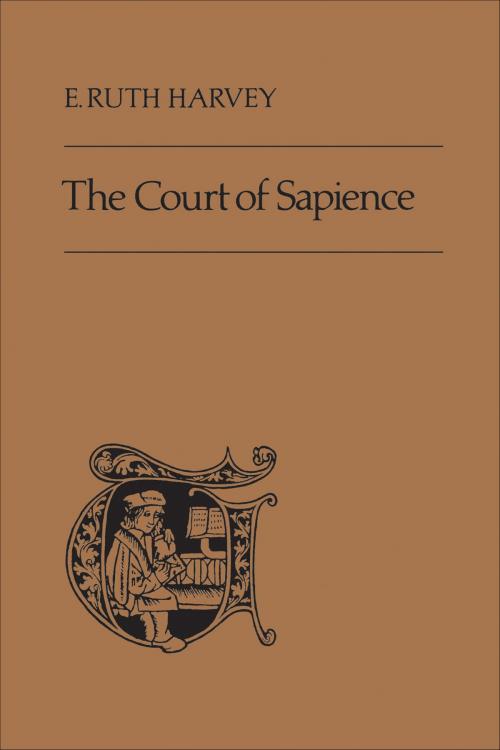The Court of Sapience
Fiction & Literature, Literary Theory & Criticism, Medieval, Poetry History & Criticism, British| Author: | ISBN: | 9781487589851 | |
| Publisher: | University of Toronto Press, Scholarly Publishing Division | Publication: | December 15, 1984 |
| Imprint: | Language: | English |
| Author: | |
| ISBN: | 9781487589851 |
| Publisher: | University of Toronto Press, Scholarly Publishing Division |
| Publication: | December 15, 1984 |
| Imprint: | |
| Language: | English |
The medieval English allegorical poem, The Court of Sapience, was written in the middle of the fifteenth century by an unknown author. It is best described as an encyclopaedia: in the allegory the poet describes the nature and activities of wisdom in all its aspects. He includes a moving account of the fall of a man and his restoration by divine wisdom; then he leads his dreamer through a landscape where all the traditional beauties of nature are catalogued and assigned their properties. The visit to the castle of Sapience, inhabited by all the branches of learning and the seven restorative virtues, completes the poem as we have it.
The first edition was an early production of Caxton's press, and it was reprinted by his successor, Wynkyn de Worde. This is a new edition of Caxton's text of the poem. Variant readings from the extant manuscripts have investigated in detail and are discussed in the lengthy introduction and extensive commentary.
The poem is an attractive work in itself, and has been admired by C.S. Lewis and other modern critics. It is also a valuable witness to the taste of the early Tudor period.
The medieval English allegorical poem, The Court of Sapience, was written in the middle of the fifteenth century by an unknown author. It is best described as an encyclopaedia: in the allegory the poet describes the nature and activities of wisdom in all its aspects. He includes a moving account of the fall of a man and his restoration by divine wisdom; then he leads his dreamer through a landscape where all the traditional beauties of nature are catalogued and assigned their properties. The visit to the castle of Sapience, inhabited by all the branches of learning and the seven restorative virtues, completes the poem as we have it.
The first edition was an early production of Caxton's press, and it was reprinted by his successor, Wynkyn de Worde. This is a new edition of Caxton's text of the poem. Variant readings from the extant manuscripts have investigated in detail and are discussed in the lengthy introduction and extensive commentary.
The poem is an attractive work in itself, and has been admired by C.S. Lewis and other modern critics. It is also a valuable witness to the taste of the early Tudor period.















